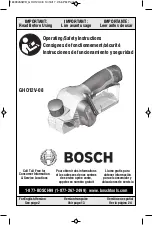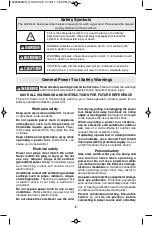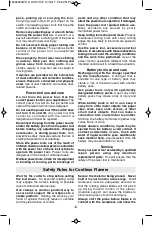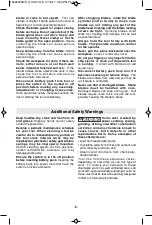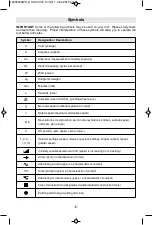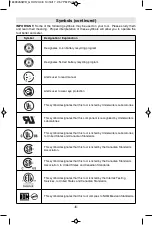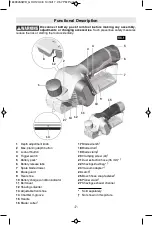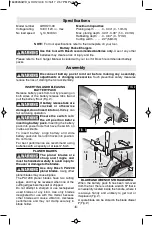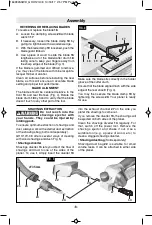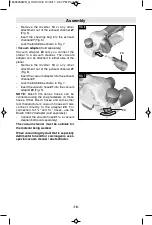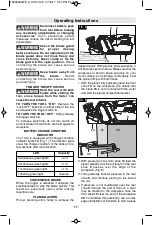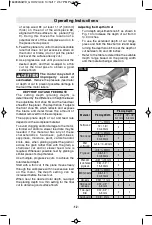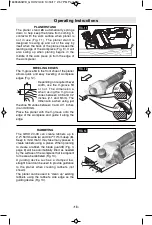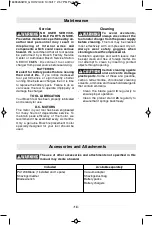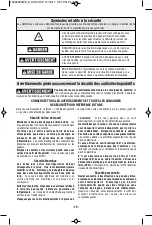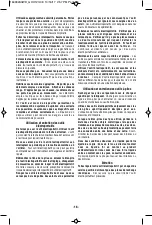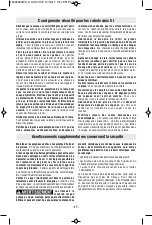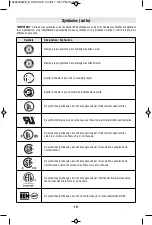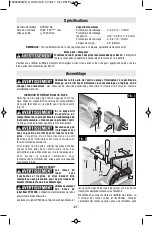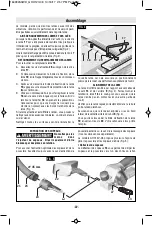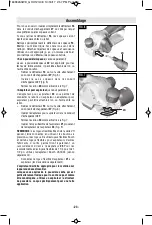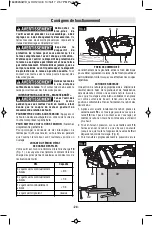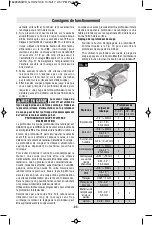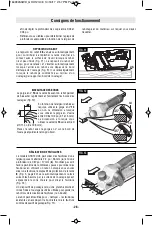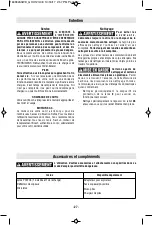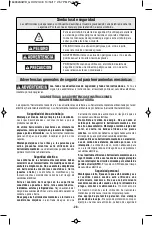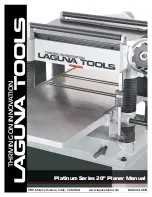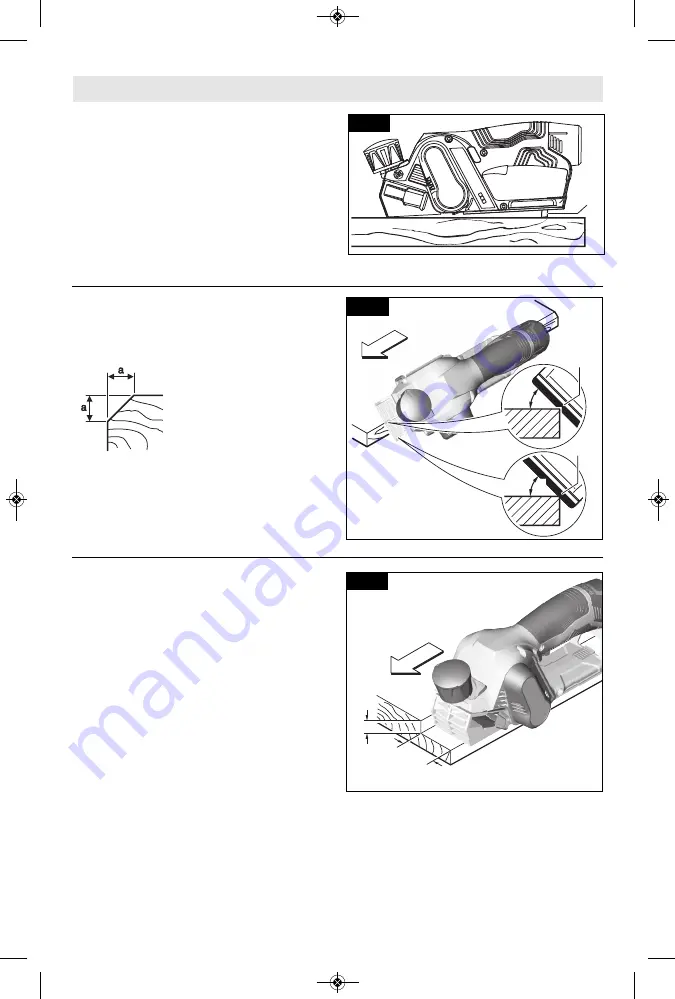
-13-
Operating Instructions
PLANER STAND
The planer stand
26
automatically springs
down to help keep the blade from coming in
contact with the work surface when planer is
not in use (Fig. 11). The planer stand is
designed to swing up and out of the way by
itself when the back of the plane crosses the
leading edge of the workpiece (Fig. 9). It will
also swing up when planing begins in the
middle of the work piece (in from the edge of
the work piece).
RABBETING
The GHO12V-08 can create rabbets up to
2.2"/ 56mm wide (
a
) and 0.67"/17mm deep (
b
).
Keep in mind that it may take many passes to
create rabbets using a planer. When planning
to create a rabbet, the blade guard
8
(Fig. 3,
page 8) will be automatically lifted as needed
by the surface of the workpiece that is adjacent
to the area be rabbeted (Fig. 13).
A guiding device such as a clamped low,
straight board can be used to provide guidance
to the planer when creating rabbets (not
shown).
The planer can be used to “clean up” existing
rabbets using the rabbet’s side edge as the
guiding device (Fig. 13).
a
b
FIG. 13
26
FIG. 11
BEVELING EDGES
The V-groove
14
in the front shoe of the planer
allows quick and easy beveling of workpiece
edges (Fig. 12).
Depending on required bevel
width, use the V-groove
14
or not. The dimension a
when using the V-groove
varies between 0.08 and 0.2
inches (2.1 and 5mm). The
dimension a when using just
the shoe
13
varies between 0 and 0.11 inches
(0 and 2.8mm).
Place the planer with the V-groove onto the
edge of the workpiece and guide it along the
edge.
45°
45°
14
13
FIG. 12
160992A3WD_GHO12V-08 10/16/17 2:57 PM Page 13

